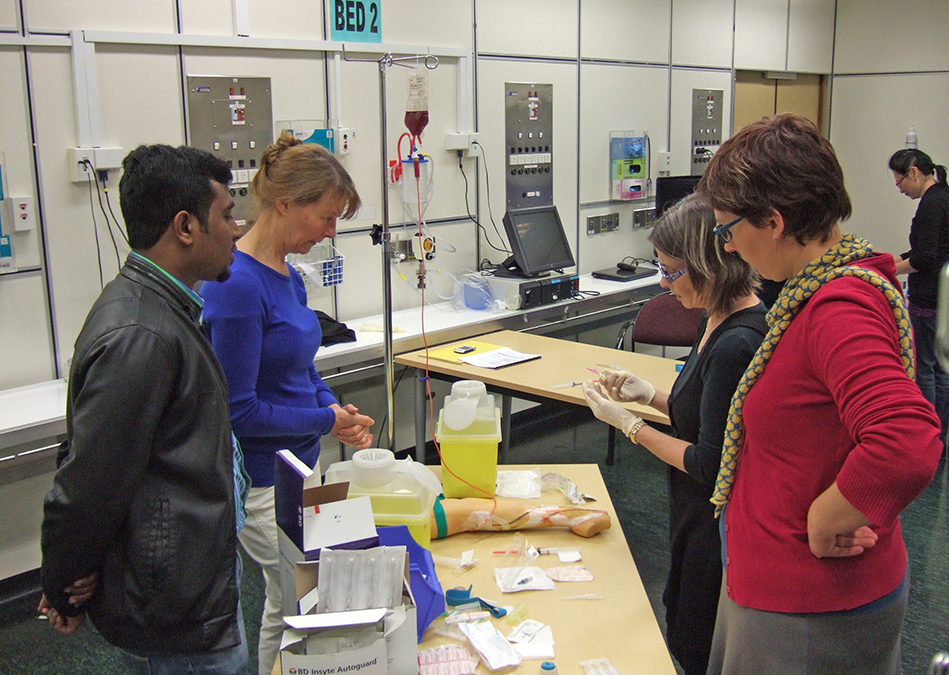Designed for Rural
The post-graduate level 7 certificate, developed by Mobile Health in partnership with Christchurch tertiary provider Ara, has been specifically designed to upskill nurses to meet the unique demands and challenges faced in more isolated rural settings.
Rowena was one of the first to sign up for the new nursing certificate when it was launched in 2013. Since then she’s studied part-time to complete the course, gaining credits in ten papers specialising in rural nursing practice, including rural emergency care, infection control management, respiratory system management and pain management for care of the dying.
Learning By Doing
The focus of the course is on self-study and ‘learning by doing’, with students encouraged to develop critical thinking around aspects of rural nursing and to use tools and technologies to answer key questions. It’s aimed at fostering initiative and developing enquiry.
“Coming into this course I had only generalist nurse training in an academic sense but the practical skills I’ve learned these past four years have significantly improved my confidence and skill level and exposed a passion for learning. It’s actually started a wee fire in my belly to pursue rural nursing further as a speciality” she says.
Born and raised in rural North Otago, the married mother of two has lived in the Manawatu township for the past eleven years. She says she’s committed to her local community and is keen to ‘do her bit’ to help support the health of her patients at both the Dannevirke Medical Centre and Dannevirke Community Hospital. “We’ve lost a few GPs in the district in the past year which makes nursing experience all the more vital. We have a fantastic team of doctors, nurses and midwives who all pull together and deliver excellent care” says Rowena.
Mobile Health, who’s mobile surgical bus provides vital access to surgery for thousands of rural patients nationwide, says it was keen to establish the course as a means of giving-back to the rural health sector and further investing in the academic pathways available for nurses.
“We surveyed over 300 rural nurses nationwide and asked them what extra skills and knowledge might be useful for them” says Mobile Health CEO Mark Eager. “The feedback we received showed quite clearly that they wanted to develop more practical skills in order to better care for their patients”.

“Ara were interested in offering flexible ways of learning and their nursing tutors really understood the rural environment” says Eager.
Ara Principal Nursing Lecturer Lorna Davies designed the certificate course. She says its unique focus on flexibility for rural nursing students was key. “The papers offered in this course are very ‘hands-on’, practical and case study-focussed. The fact that much of the essential learning can be done online, anytime and anywhere, has been a major factor in the course’s appeal for rural nurses, cutting down the need for on-going travel to a major centre for large blocks of learning, saving on accommodation and travel expenses as well as time away from jobs and families” she says.
Lorna Davies says four more rural nurses, based in Hurunui and Wairarapa, are poised to soon join Rowena as course graduates. She says others up and down the country are also opting to complete papers individually, cherry-picking those most pertinent to the skills they need.


